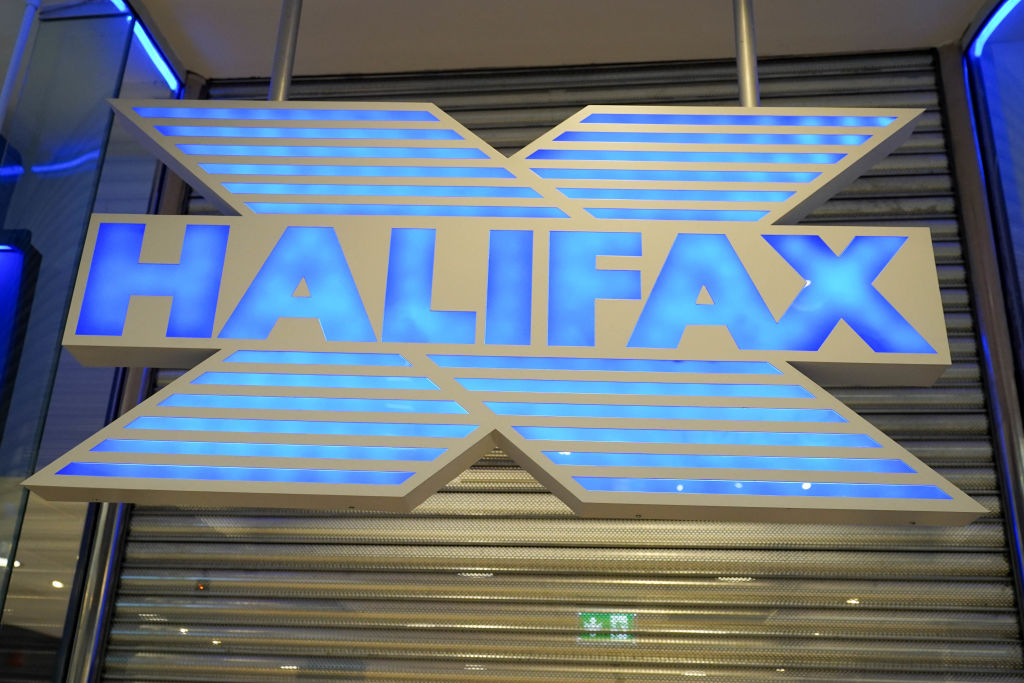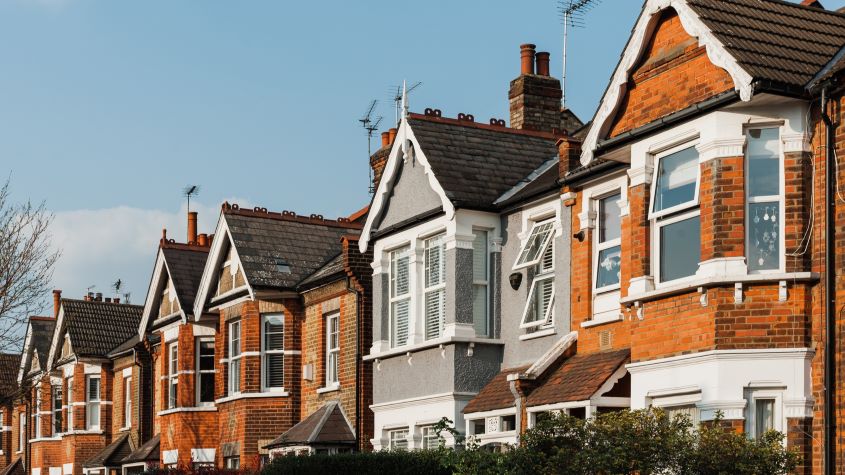UK house prices remained flat in May, Halifax finds
Average house prices fell 0.1% month-on-month, meaning they have remained relatively static for three consecutive months on the Halifax HPI.


Get the latest financial news, insights and expert analysis from our award-winning MoneyWeek team, to help you understand what really matters when it comes to your finances.
You are now subscribed
Your newsletter sign-up was successful
Want to add more newsletters?

Twice daily
MoneyWeek
Get the latest financial news, insights and expert analysis from our award-winning MoneyWeek team, to help you understand what really matters when it comes to your finances.

Four times a week
Look After My Bills
Sign up to our free money-saving newsletter, filled with the latest news and expert advice to help you find the best tips and deals for managing your bills. Start saving today!
The housing market could benefit from house prices and interest rates remaining flat, Halifax claims.
Its latest House Price Index (HPI) showed UK prices fell marginally month-on-month to an average of £288,688. With interest rates remaining frozen at a 16-year-high of 5.25% and mortgage rates plateauing after months of increases, the lender said buyers and sellers should have a “degree of confidence.”
Other house price indices have shown a spring bounce has taken place, with Nationwide and the Office for National Statistics both reporting uplifts in property prices. Rightmove found asking prices hit a record high last month.
MoneyWeek
Subscribe to MoneyWeek today and get your first six magazine issues absolutely FREE

Sign up to Money Morning
Don't miss the latest investment and personal finances news, market analysis, plus money-saving tips with our free twice-daily newsletter
Don't miss the latest investment and personal finances news, market analysis, plus money-saving tips with our free twice-daily newsletter
It comes as experts have predicted that the market will be relatively unaffected by the general election campaign. But changes could be on the way after the Labour Party said it would introduce a Freedom to Buy scheme if it forms the next government. The Conservatives have promised not to hike stamp duty if they are re-elected at the ballot box.
Halifax: UK house prices ‘have not seen a spring bounce’
The latest property research from Halifax has shown the average UK house price fell 0.1% (£174) from £288,862 in April to £288,688 in May. It means the UK average has remained relatively static for a third consecutive month.
Year-on-year, prices rose 1.5% - an acceleration of price inflation on April’s data, which showed growth of 1.1%. But this jump came as a consequence of house prices dropping almost 2% in May 2023.
The highest growth figures were seen in the North West, where prices rose 3.8% annually to an average of £232,258. Northern Ireland was not far behind, posting an annual increase of 3.2% - a slight drop on the 3.3% yearly growth it recorded in April.
Scotland’s housing market also experienced above-average inflation, Halifax found, with a rate of 1.9%. But Wales saw its rate of growth slide from 1.1% the previous month to 0.7%, meaning house prices in the nation are now £219,483.
The biggest decline was seen in Eastern England, where prices fell 0.8% year-on-year to an average of £329,853. Meanwhile, London remained relatively static, with prices going up just 0.2% annually to a still-expensive price tag of £536,821.
House prices unlikely to change significantly anytime soon, Halifax says
Reacting to the latest figures, Amanda Bryden, the head of mortgages at Halifax, says: “Market activity remained resilient throughout the spring months, supported by strong nominal wage growth and some evidence of an improvement in confidence about the economic outlook. This has been reflected in a broadly stable picture in terms of property price movements, with the average cost of a property little changed over the last three months.
“A period of relative stability in both house prices and interest rates should give a degree of confidence to both buyers and sellers. While homebuyers and those remortgaging will continue to respond to changes in borrowing costs, set against a backdrop of a limited supply of available properties, the market is unlikely to see huge fluctuations in the near term.”
Capital Economics, which said the economic consensus was that house prices on Halifax’s HPI would rise 0.2% month-on-month, warned mortgage rate rises have “a little further to go” as a result of a delay in interest rate cuts caused by the election. It added: “[This has] fed through to a rise in the interest swap rates that mortgages are priced off. As a result, in the near term, house prices will stagnate at best.”
According to comparison website Moneyfacts, the average two-year fixed mortgage deal was 5.95%, while a typical five-year fix stood at 5.52% - 0.01 percentage points up on the day before. There were 6,656 products available to buyers and remortgagers.
In the longer term, Capital Economics said falling inflation and future base rate reductions could reduce mortgages to the extent that there is a “renewed impetus” in prices in 2025. The consultancy said we could see growth of 5% next year.
This outlook was echoed by Nicky Stevenson, managing director of estate agency group Fine & Country, who said: “With inflation easing, there should soon be more confidence in household budgets, allowing buyers to aim higher for their desired home. Recent transaction figures also revealed a fourth consecutive month-on-month increase in April, with more people seeing sales through to completion.
“For sellers, increased demand for homes means they can hold firm on their asking prices. While this might not be welcome news for buyers - especially first-timers - an anticipated interest rate cut this summer could provide some relief in the coming months.”
Professional body Propertymark was also positive. Its chief executive Nathan Emerson said the UK market “seems to be generally moving in the right direction”. But he also warned: “With a general election now on the horizon, there may be potential caution from buyers and sellers, especially those hoping to step onto the housing ladder for the first time, as they await any announcements regarding government support. People will also be carefully awaiting the Bank of England’s next announcement this month.”
Get the latest financial news, insights and expert analysis from our award-winning MoneyWeek team, to help you understand what really matters when it comes to your finances.
-
 Last chance to invest in VCTs? Here's what you need to know
Last chance to invest in VCTs? Here's what you need to knowInvestors have pumped millions more into Venture Capital Trusts (VCTS) so far this tax year, but time is running out to take advantage of tax perks from them.
-
 ISA quiz: How much do you know about the tax wrapper?
ISA quiz: How much do you know about the tax wrapper?Quiz One of the most efficient ways to keep your savings or investments free from tax is by putting them in an Individual Savings Account (ISA). How much do you know about ISAs?
-
 Average UK house price reaches £300,000 for first time, Halifax says
Average UK house price reaches £300,000 for first time, Halifax saysWhile the average house price has topped £300k, regional disparities still remain, Halifax finds.
-
 Halifax: House prices rise at fastest pace since start of year
Halifax: House prices rise at fastest pace since start of yearThe average UK house price jumped 0.4% in July, reaching £298,237, close to a record high, new house price index data shows. Will property prices increase further this year?
-
 Halifax: House price slump continues as prices slide for the sixth consecutive month
Halifax: House price slump continues as prices slide for the sixth consecutive monthUK house prices fell again in September as buyers returned, but the slowdown was not as fast as anticipated, latest Halifax data shows. Where are house prices falling the most?
-
 Halifax: House prices rise for the third month in a row
Halifax: House prices rise for the third month in a rowNews Despite higher interest rates, Halifax says house prices are still rising in some parts of the country
-
 Which house price index is the best?
Which house price index is the best?There are at least five indices measuring house prices. But which house price index is the best?
-
 House prices fall for four months straight
House prices fall for four months straightNews UK house prices dipped by 1.5% in December, the fourth consecutive month, Halifax’s latest House Price Index reveals
-
 The days when you could get 7% from your bank are long gone – so what do you do?
The days when you could get 7% from your bank are long gone – so what do you do?Opinion With interest rates at rock bottom for so long, we’ve been forced to move from saving to speculating to earn any sort of return. Dominic Frisby asks where we should put our money now, and explains where he’s put his.
